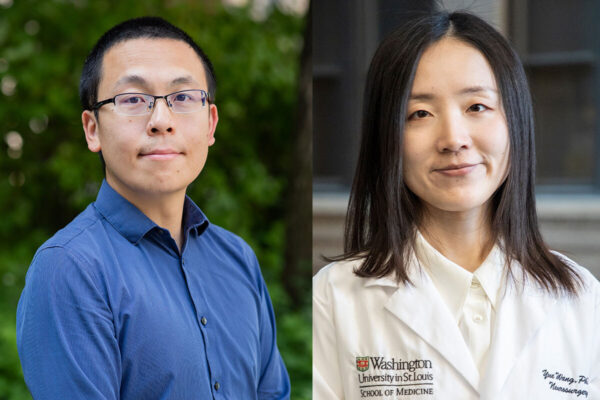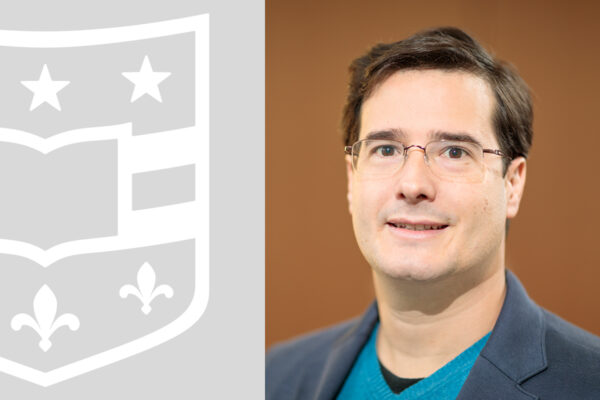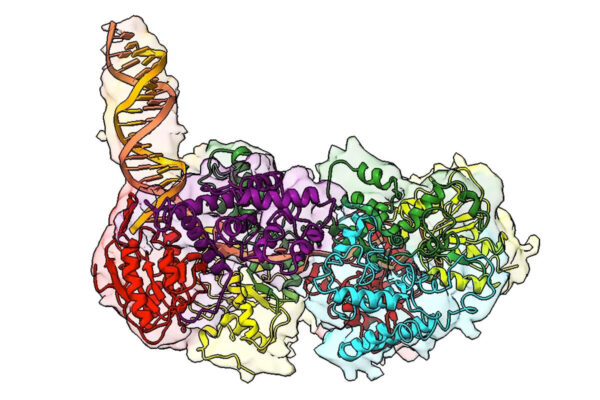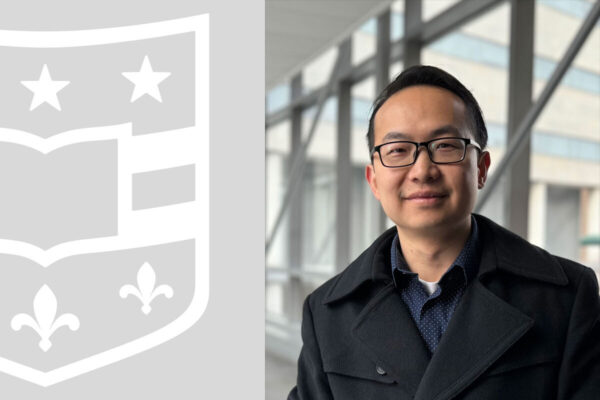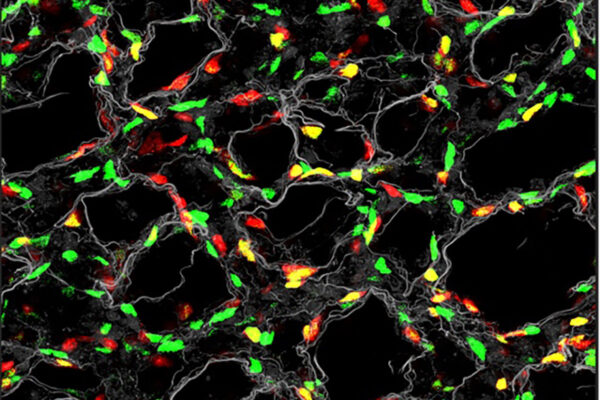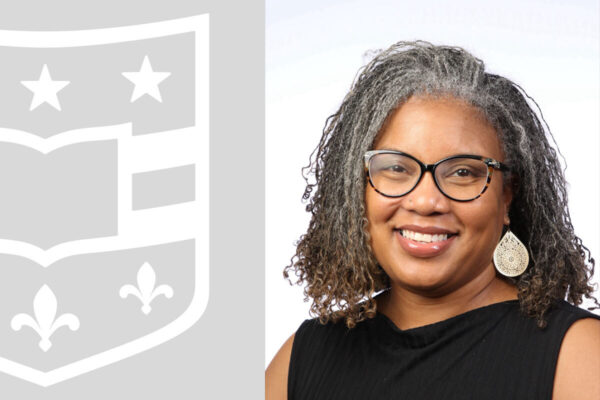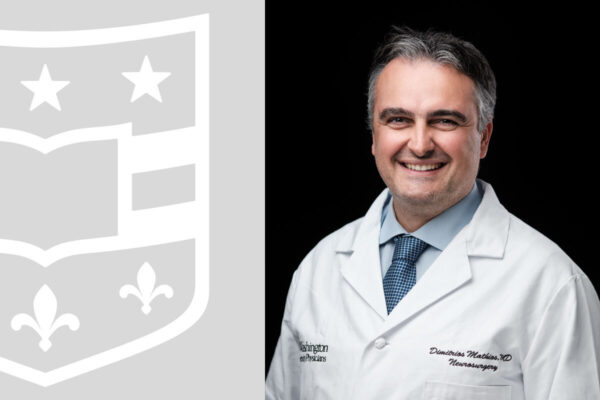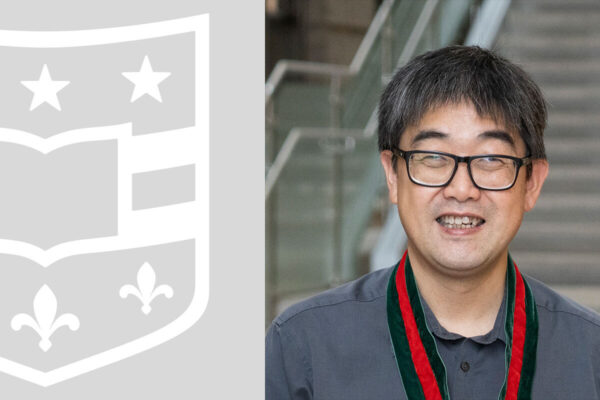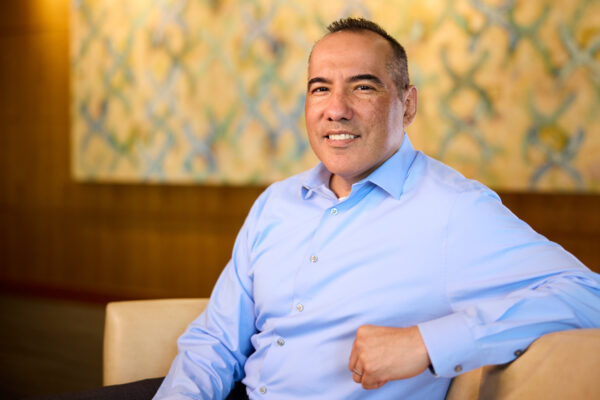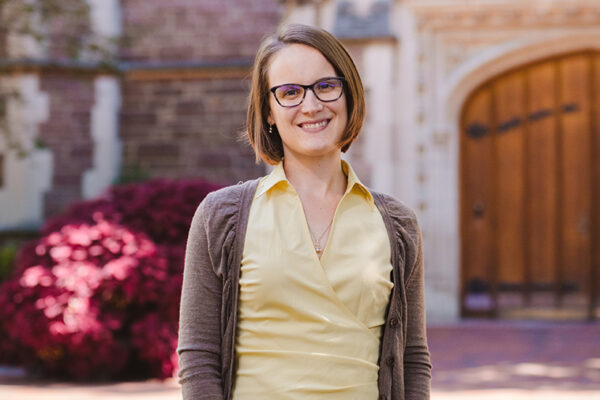Researchers identify brain cells key to facial recognition
A team led by WashU Medicine radiology associate professor Shuo Wang has identified neurons that appear to play a key role in our ability to recognize people.
Blood plasma reveals shared pathways in neurodegenerative diseases
WashU Medicine researchers have identified biomarkers of Alzheimer’s, Parkinson’s and frontotemporal dementia from blood plasma, suggesting new therapeutic avenues.
Key component to cell division unveiled in 3D
A new study from WashU Medicine researchers describes the structure of an important protein that unspools the DNA molecule so the DNA can be repaired. Interfering with the protein could prove useful in developing new therapeutics for tuberculosis or other diseases caused by organisms that rely on these proteins to repair their DNA.
WashU molecular biologists identify multifunctional virus-sensing protein
WashU Medicine researchers led by Siyuan Ding identified an immune-system protein in human cells that has the unusual capacity to respond to both DNA and RNA from pathogens, which may have implications for developing vaccines.
Ornitz receives NIH grant to study lung development
The National Institutes of Health (NIH) has awarded David M. Ornitz, MD, PhD, of WashU Medicine, $740,000 annually for four years to support research aimed at understanding respiratory complications associated with premature birth.
Harris selected for William T. Grant Scholar Class of 2030
Occupational therapy faculty member Kelly Harris, at WashU Medicine, will receive a $425,000 award to develop and test a technology-enabled care coordination service model to support Black youth with asthma.
Machine learning can improve detection of brain cancer from blood
WashU Medicine neurosurgeon Dimitrios Mathios, MD, has developed a liquid biopsy that is aided by machine-learning tools to improve the detection of brain cancers.
Detailed molecular steps of blood clotting revealed in new study
A study in Nature led by Weikai Li at WashU Medicine reveals the molecular details of how vitamin K-dependent gamma carboxylase operates, a critical step in the blood clotting process.
Grant renewal funds research on longevity in mammals
WashU Medicine researcher Benjamin Garcia will receive $18.5 million from the National Institutes of Health (NIH) to study how long-lived mammals stay healthy into old age.
Students don’t learn the way they think they do
A new study reveals that students learn best through prediction activities, even though they don’t realize it. This idea is at the center of research published by biologist Elise Walck-Shannon and her co-instructors for an introductory genetics course in Arts & Sciences.
View More Stories
